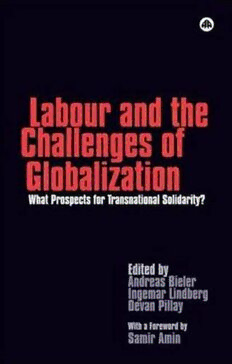
Labour and the Challenges of Globalization: What Prospects for Transnational Solidarity? PDF
353 Pages·2008·1.495 MB·English
Most books are stored in the elastic cloud where traffic is expensive. For this reason, we have a limit on daily download.
Preview Labour and the Challenges of Globalization: What Prospects for Transnational Solidarity?
Description:
This book critically examines the responses of the working classes of the world to the challenges posed by the neoliberal restructuring of the global economy. Neoliberal globalisation, the book argues, has created new forms of polarisation in the world. A renewal of working class internationalism must address the situation of both the more privileged segments of the working class and the more impoverished ones. The study identifies new or renewed labour responses among formalised core workers as well as those on the periphery, including street-traders, homeworkers and other 'informal sector' workers. The book contains ten country studies, including India, China, South Korea, Japan, Germany, Sweden, Canada, South Africa, Argentina and Brazil. It argues that workers and trade unions, through intensive collaboration with other social forces across the world, can challenge the logic of neoliberal globalization.
See more
The list of books you might like
Most books are stored in the elastic cloud where traffic is expensive. For this reason, we have a limit on daily download.
